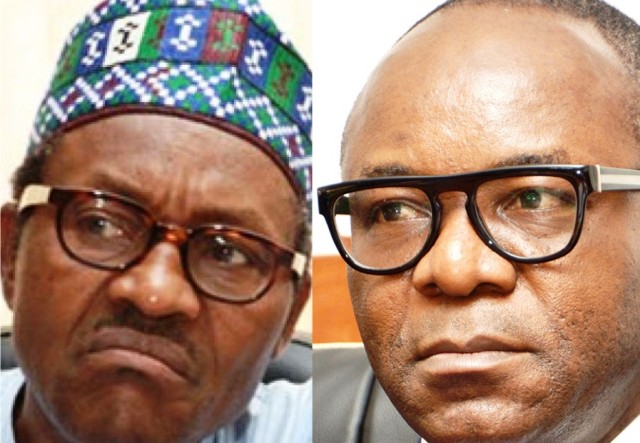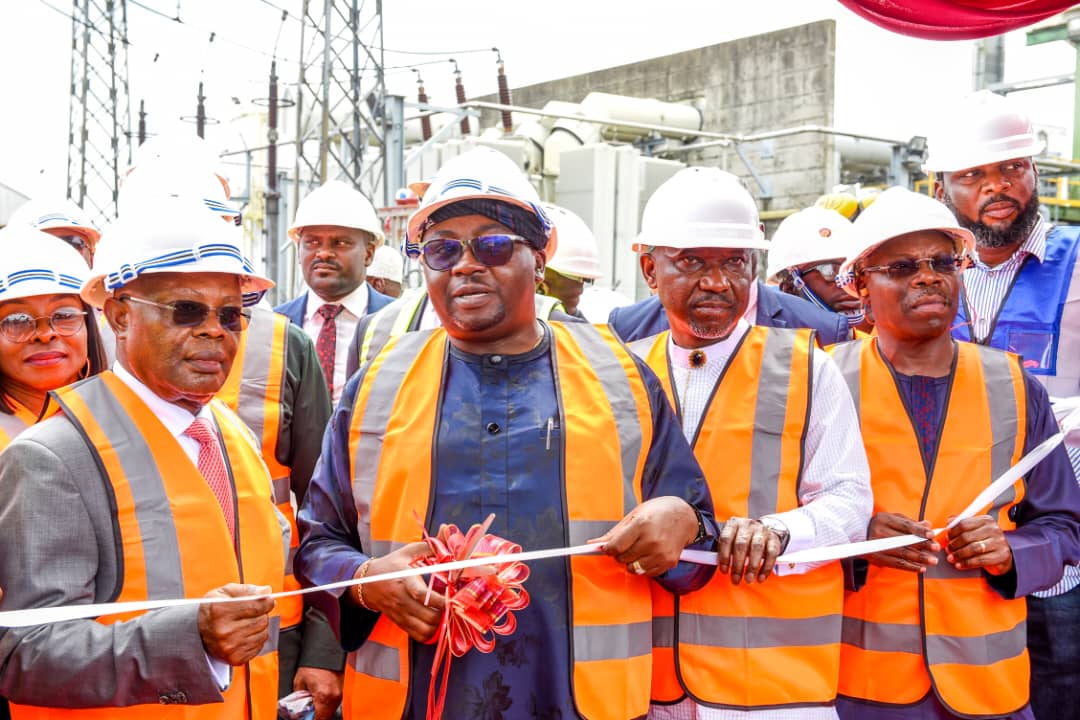Featured
Politics Of Oil, Solid Minerals …A Case Of Numbers Being Strength

The agitation for economic integration, political relevance and environmental protection by individuals and interest groups within the Niger Delta did not start today. Before it snow-balled into full-blown insurgency, well-meaning elite and indeed political and environmental activists had at various times made the case for the respect of the universal law on land ownership and why Nigeria’s Land Use Decree was an enactment of oppression.
Men like Chief (Senator) Melford Okilo, Chief Harold Dappa Biriye and Ken Saro Wiwa among others of blessed memory were civil in their agitations, arguments that drew global support for their noble cause. They insisted that the act of denying land owners proceeds of their inheritance was barbaric, suffocating, marginalizing and indeed oppressing.
Even with facts of history on the issue of derivation, the level of environmental hazards occasioned by oil prospection and production, the pollution of the people’s rivers and swamps, the threat to their major occupations, fishing and farming and above all, the discrimination against the youth of the affected areas, the political class weighed heavily in favour of the majority tribes dismissed the people’s agitation with a wave of the hand.
So frustrating, even the issue of derivation was also politicised. Infact, it was a case of persistent civil protest from one government to another, both civilian and military. At some point under the Buhari military leadership, derivation was as low as 1.5 percent, even with all the environmental degradation suffered by the people.
What was most annoying was that the people of the rural areas, where, oil was daily being drilled, saw electricity light in house-boats and estates of oil companies but used kerosene lamps.
The people saw oil company workers drinking bottled water and threw the wastes into their rivers, which also obstructed fishing, but drank from wells and sometimes stagnant water.
That two-class syndrome also ignited the vulnerability of the girl-child, who became play thing for highly paid oil workers. The freebies such vulnerable girls got from the predatory pastime of the red-eyed workers encouraged easily prostitution and sent many out of schools.
Employment of the males was also a pipe dream. Each oil company involved in the production of oil went to the rural communities with their own work force, and ensured sustenance of the status quo by manipulating posting of youth corps members from their own tribes who are eventually employed, instead of the qualified many within the community and state.
Even the Act providing low level jobs for locals was observed in the breach. With that, the frustrated youth thus became mere tools in the hands of oil workers, to whom they served as pimps, for cutting grass at the estates of the companies, sparingly as night guards and at other times for clearing of gutters.
Interestingly, because operational modus was signed directly with the Federal Government, the oil bearing communities, with all their environmental stakes were insulated from the operations or got peanuts. Like the proverbial man surrounded by water with none to drink, the Niger Delta youth saw unbridled affluence and financial rascality daily flaunted by oil workers to lure their sisters, aunts and even mothers out of matrimony, but could not touch.
That indeed further fuelled the violent agitation. With nothing to rely on for sustenance, since their rivers and seas were covered by oil wastes and sometimes leaks from their pipes with devastating effects on all sea creatures, sea foods like periwinkles, oysters, shrimps and mangrove crabs among others daily exterminated by pollutants and with no hope of change, what was once a civil debate, humble protest, mature agitation and simple appeal by the elite turned to violent threats, militancy and insurgency.
The major demand became Resource Control, and arrangement which would allow the people and governments of oil producing communities and states to control the resources from their God-given land, as obtains everywhere in the free world. The youth wanted true and practical federalism which would force states to pay taxes through the management of their own resources.
But for over 50 years, that simple request remains unanswered. Each time, their protestation turned to a violent kind, given that a hungry man is near-frequently an angry man, the oppressors would demonstrate their heavy handedness through the deployment of arms and ammunition to quell any insurrection while the central issue remained unsolved.
In all these years, the argument put forward by the political elite of the majority North and their South Western collaborators has been that oil is a gift from God and so belongs to all, therefore, primary owners of the land, being Nigerians, cannot lay claim of singular ownership to such resources. According to them, since the treasure remained buried beneath the land, within Nigerian geographical space, it belongs to all Nigerians, and so must be centrally manage, as if the Niger Delta became Nigeria by choice.
With that conclusion, proceeds from oil go faraway Abuja to sustain even states that contribute little or nothing, apart from being lucky to be under the protection of the majority.
That is also why the Petroleum Industry Bill (PIB) has not been passed for nearly six years. Part of the bill seeks to make paltry allowance for oil bearing communities, not just to give them a sense of belonging but also instill in them the need to protect oil company assets located in their arears, since they are direct beneficiaries.
That too appears to the strong majority opposition too much of a sacrifice, since oil is simply a gift from God. But to whom? The same God that gave the North more fertile land for agricultural and livestock activities and rivers and swamps to Rivers, Bayelsa, Delta, Akwa Ibom, Cross River, Delta, Edo, among others for fishing? With such rivers, seas and swamps polluted by production of a commodity that now belongs to all, would the North also willingly share proceeds of their agricultural earnings?
Each time these questions are raised, the answer has remained the same. Oil, being buried beneath the land within Nigeria’s territory, remains a gift from God. But in their comfort zone, they forget that those who make peaceful change impossible make violent change inevitable, as the sages say.
Could that have accounted for the large scale insurgency under the Yar’Adua Presidency and subsequent pronouncement of amnesty? Unfortunately, all other projects that went with the amnesty, especially the East West Road still remain uncompleted. Still too much infrastructural deficit. Still too much discrimination against qualified manpower of Niger Delta origin.
Bottomline, Niger Deltans cannot claim benefits from their own lands, because everything sourced therefrom is a gift from God, and belongs to all.
That is why it came to me as a rude shock last week, to read that the Adamawa State Government, in Northern Nigeria is to start exporting solid minerals including uranium, gold, lead, diamond and platinum, according to that state’s Commissioner for Solid Minerals, Shanti Shashi.
Infact, Commissioner Shashi said BTP, a Swiss company has signed a $56bn contract for solid minerals exploration in a very short while.
When did gold, lead, diamond, platinum and uranium become cash crops? What different law excludes these products, buried beneath the land as Gift from God? Or is it simply a green light for resource management and control?
It is most unlikely, because even as recent as last week, President Muhammadu Buhari alluded to the fact that with all the talk about diversification of the economy, oil production still remains the mainstay of the Nigerian economy, and so would do everything humanly possible to improve production and by extension, improved earnings.
My Agony is that it is very likely that the policy of resource control would come into effect, now through the back door, and later officially only when oil in the Niger Delta dries up completely. That will be when, Borno State begins oil production in large quantities.
Here, perhaps is a window for state governments in oil bearing Niger Delta to go into partnerships with willing foreign investors to start oil prospection and production before oil dries up.
Let’s not dismiss this merely as view thought out in recession, with a near empty stomach. It is a window shut for over 50 years of oil exploration.
Soye Wilson Jamabo
Featured
Tinubu Commissions Afam 11 Power Plant …Urges Stronger Private Sector Partnership In Power Sector

President Bola Tinubu has restated the commitment of the Federal Government towards achieving sustainable electricity supply and industrialisation in Nigeria.
Tinubu gave the declaration during the commissioning of the newly constructed 180 megawatts Afam 11 Power Plant located in Afam, Oyigbo Local Government Area in Rivers State on Wednesday.
He said the completion of the project within just 16 months was a key achievement in the power sector.
The President who addressed Nigerians virtually during the event, emphasized that the project, which is a landmark partnership between Crescendough Nigeria Limited (CNL) and Sahara Power Group, underscored the tenacity of his administration to promote success in private sector partnership and development, adding that the feat will increase industrialisation and economic growth in the country.
The president commended the Rivers State Government, the contractors, Sahara Energies and Crescendough Nigeria Limited (CNL) for the successful delivery of the project on record time.
While urging stronger collaboration among stakeholders to achieve a more globally competitive Nigeria, Tinubu said achieving sustainable power supply remains an unwavering goal under his administration
The President described the project as a testament to the blossoming investment opportunities fostered by his administration’s well-structured policies, which prioritize national development and private sector participation.
He emphasized that the Afam II Plant will not only bolster Nigeria’s power generation capacity by adding 180MW to the national grid but also energize businesses, industries, healthcare facilities, and households, igniting hope for a brighter economic future.
“The completion of the Afam II Plant within just 16 months reinforces our capacity to overcome challenges through collaboration, tenacity, and unwavering commitment under the Renewed Hope Agenda,” President Tinubu stated. “Achieving stable power supply remains a top priority for this administration. I have directed the Honourable Minister of Power and all stakeholders in the power value chain to work collectively towards our declaration to light up Nigeria.”
“We solicit the support of all Nigerians as we implement reforms and strategies to transform the power sector. Our administration will continue to enforce policies that attract investments—both local and foreign—to achieve this critical goal,” he affirmed.
In his remarks, the Administrator of Rivers State, Vice Admiral Ibok-Ete Ibas (Rtd), hailed the project as a product of visionary leadership and private sector empowerment.
He noted that President Tinubu’s enabling policies have spurred bold investments across key sectors, including power, agriculture, oil and gas, education, and transportation.
“This power plant reflects the long-standing vision of successive Rivers State administrations to expand energy infrastructure beyond oil and gas, driving industrial growth,” Vice Admiral Ibas said. “Beyond boosting electricity supply, this project has created jobs and skills development opportunities for youths in Afam. I commend the host community for their cooperation, proving that peace and development go hand in hand,” he said.
The Minister of Power, Adebayo Adelabu, described the Afam II Plant as a commendable milestone showcasing the private sector’s pivotal role in enhancing power generation within a conducive business environment.
Similarly, the Minister of State for Petroleum Resources (Gas), Ekperikpe Ekpo, applauded Rivers State’s sustained investments in energy infrastructure since 2011, culminating in the Afam II Plant’s success.
Speaking at the event, the Group Managing Director of Sahara Power Group, Kola Adesina, highlighted that the partnership reinforces Sahara’s position as Nigeria’s largest private-sector electricity provider, contributing 20% of the nation’s power supply and driving sustainable development.
He described the project as a celebration of collaboration, intentional strategic and sustainable partnership that make Nigeria an industrial hub.
He commended President Tinubu’s Renewed Hope Agenda, while also thanking the host communities for their support.
The Tide reports that the Afam II Power Plant stands as a beacon of progress, underscoring Nigeria’s resolve to achieving energy security, economic growth, and industrial transformation under the Renewed Hope Agenda.
Taneh Beemene
Featured
Tight Security As Muslims Celebrate Eid-el-Kabir, Today

As Muslim faithful celebrate the Eid-el-Kabir today, security agencies, including the Federal Road Safety Corps, National Security and Civil Defence Corps, and the Nigerian Police have deployed over 50,000 personnel to secure shopping malls, prayer grounds, motor parks, markets, recreational centres and various government buildings for the celebrations.
The FRSC, in a statement by its spokesperson, Olusegun Ogungbemide, on Wednesday, stated that over 36,000 personnel, including regular and special marshals, will be deployed across the country.
This is as he disclosed that the FRSC has commenced a nationwide special patrol operation in preparation for the Eid el-Kabir celebrations slated for today.
The operation will be supported by 750 patrol vehicles, 120 ambulances, 25 tow trucks, and more than 200 motorbikes.
The initiative, which runs from June 5 to June 11, aims to ensure road safety and manage traffic flow during the festive period.
The statement read in part, “Pursuant to the declaration of Friday, 6 June 2025 as the day of Eid el Kabir in Nigeria, the Federal Road Safety Corps has commenced massive Mobilisation of its personnel and operational equipment for the Sallah special patrol aimed at ensuring safer road environment, before, during the festive period and beyond.
“The Operations Order states that not fewer than 36,000 of the FRSC regular, special marshals, and about 750 patrol vehicles, 120 ambulances, 25 tow trucks and over 200 Bikes would be on the road during the special operation that would commence from 05 to 11 June 2025.”
The statement noted that the Corps Marshal, Shehu Mohammed, disclosed that the special patrol was designed to facilitate free vehicular movement, enable prompt rescue operations, and promptly clear road obstructions.
Mohammed stressed the corps’ commitment to reducing road traffic crashes through effective patrols and public enlightenment.
The statement read in part, “To ensure the effectiveness of the operations, the Corps Marshal, Shehu Mohammed, directed commanding officers operating across various formations nationwide to ensure that the 52 corridors are properly manned throughout the operations.
“He, however, appealed to motorists to obey all traffic rules and regulations and cooperate fully with the FRSC and other law enforcement agencies that would be deployed for traffic management duties, saying mobile courts would be in session across the country for prompt dispensation of justice to recalcitrant traffic violators.
“The Corps Marshal also directed that the operatives pay first-rate focus on effective traffic control, wrongful overtaking, use of phone while driving, driver licence violation, lane discipline, removal of rickety vehicles on the road, driving with expired/worn-out tyre and those without spare tyre etc.”
The statement added that commanding officers have been instructed to ensure full coverage of 52 key corridors across the country, including major highways such as Akwanga-Lafiya-Makurdi, Abuja-Kaduna-Kano, Sagamu-Mowe-Lagos, and Jos-Bauchi-Gombe, among others.
The corps also stated that it had equipped its officers with radar guns and breathalysers to monitor speed and deter drunk driving.
It urged all road users to cooperate with enforcement officers and to advocate for responsible driving habits during the festivities.
In the same vein, The Lagos State Police Command has rolled out a robust security plan to ensure a safe and peaceful Eid el-Kabir celebration across the state.
This was contained in a statement yesterday, by the command’s Police Public Relations Officer, CSP Benjamin Hundeyin, issued on behalf of the Commissioner of Police, CP Olohundare Jimoh.
According to the statement, the CP has ordered the deployment of various tactical and conventional police teams across the State to preempt and prevent any form of criminal activity during the festive period.
The statement partly read, “The Commissioner of Police, Lagos State Command, CP Olohundare Jimoh, has ordered the immediate deployment of conventional police personnel, the Rapid Response Squad, the Eko Strike Force, and other tactical squads of the Nigeria Police Force to all strategic locations across the length and breadth of Lagos State.
“Special anti-crime prevention teams have also been deployed to identified black spots, criminal hideouts, and other flashpoints to prevent crimes and criminality throughout the state, build public confidence, and dispel the fear of crime from the minds of all Lagosians and visitors alike, to guarantee safety and ensure a hitch-free Eid el-Kabir Sallah celebration during this festive season and beyond.”
It added that to strengthen operational coverage, the commissioner also deployed highly trained officers from the Force’s elite units.
“Consequently, the Commissioner of Police has deployed strike forces of the NPF and tactical squad officers from the Police Mobile Force, Counter-Terrorism Unit, Special Protection Unit, Intelligence Department, Anti-Bomb Squad, and conventional teams across the state, with Armoured Personnel Carriers and other vehicular patrol teams, to focus strictly on providing security and protection at all Eid praying grounds, mosques and religious facilities, venues of gatherings and celebrations, and other areas of recreation, in order to ensure the safety and security of Muslim faithful and other non-Muslims who will be joining in the celebrations”, the statement further stated.
The command also assured Lagosians that key public areas would be closely monitored, stating, “Particular security attention is focused on recreation centres and other public spaces where large gatherings are anticipated. These spaces will be thoroughly policed to ensure effective crowd control, traffic management, and ease of movement across Lagos State.
“Additional proactive measures are being implemented to prevent crimes, ensure prompt detection of criminal activity, and address any emerging security concerns across the state.”
The statement further added that maintaining peace throughout the celebration remains a top priority for the Lagos Police Command, stating, “The maintenance of public order before, during, and after the festivities remains the utmost priority of the Command.
Meanwhile, the NSCDC in Lagos has also mobilised 2,150 officers across the state.
A statement by the Lagos Civil Defence Public Relations Officer, Oluwaseun Abolurin, indicated that the officers are to ensure adequate security and prevent unscrupulous elements from vandalising critical national assets and infrastructure in the state.
The statement quoted the Lagos State Commandant of the NSCDC, Mr Adedotun Keshinro, as assuring that operational strategies had been put in place to help rid the state of criminals and eradicate the nefarious activities of vandals and other criminal elements that take action inimical to the economic growth and development of the state.
“The officers and men across all formations of the command have been charged to bring the right and appropriate impetus on board to protect all strategic locations, points, facilities, right of ways, oil pipeline installations, religious and worship centres, parks and gardens and all assets belonging to the local, state, and Federal Government of Nigeria and more in the state,” the statement read.
In Katsina, the State Police Command said it had deployed adequate security measures to protect lives and property during and after Sallah celebrations across the state.
This was contained in a statement by the Command Public Relations Officer, DSP Abubakar Sadiq and made available to newsmen in Katsina, on Wednesday.
According to the statement, “The Katsina State Police Command under the able leadership of CP Bello Shehu, is pleased to announce that given the forthcoming Eid-el Kabir festival, it has put in place adequate security arrangements to ensure a peaceful and hitch-free Sallah celebration throughout the state. To achieve this, the command has deployed adequate personnel and assets to strategic locations across the state.”
It warned against reckless and unlawful horse riding, dangerous driving, unlawful gathering, substance abuse, etcetera, which may cause chaos and endanger the lives of good people of the state.
In Delta, the Commissioner of Police, CP Olufemi Abaniwonda, ordered massive deployment of personnel from Area Commands, Tactical formations, and divisions to provide adequate security in all Muslim prayer grounds and strategic locations across the state.
The commissioner also directed all Divisional Police Officers to intensify raids of criminal hideouts and black spots within their areas of responsibility.
This was contained in a signed statement by the police public relations officer for Delta State Command, SP Bright Edafe, on Wednesday.
According to the statement, the police boss has assured the public, particularly the Muslim faithful, of adequate security and free flow of traffic in the state during the Eid-el-Kabir celebration.
The Commissioner of Police noted that “in recognition of the significance of the sacred occasion, the Command will be working in close synergy with other sister security agencies which include the Military, DSS, NSCDC, Road Safety, etc to ensure that the activities of all unfriendly forces such as kidnappers, armed robbers, cultists, etc are nipped in the bud.”
In Kwara State, the NSCDC assured all residents and visitors of a peaceful and well-secured festive season across the state.
The State Commandant, Mohammed Umar, ordered the deployment of 2,900 officers and men across all 16 local government areas to ensure full coverage of critical infrastructure, prayer grounds, recreational centres, and other high-traffic locations.
A statement by the Public Relations Officer of the command, Ayoola Michael, on Wednesday, said, “All area Commanders, Divisional Officers, and Tactical Units have been directed to remain on high alert and sustain proactive engagements with communities.”
Meanwhile, the Federal Capital Territory Command of the NSCDC has “deployed 4,500 personnel across the nooks and crannies of the FCT” ahead of the upcoming Eid-el-Kabir celebrations.
Commandant Olusola Odumosu, who heads the FCT Command, announced the deployment as part of efforts to ensure public safety and the protection of critical national assets before, during, and after the festivities.
According to a statement signed by the command’s spokesperson, Monica Ojobi, on Wednesday, the deployment spanned specialised units, including the Female Strike Force, Arms Squad, Operation Adkasu, Critical National Assets and Infrastructure Unit, and the Chemical, Biological, Radiological, Nuclear, and Explosives Unit.
The statement revealed that officers had been stationed at key public locations considered vulnerable, such as shopping malls, prayer grounds, motor parks, markets, recreational centres, the City Gate, the Three Arms Zone, amusement parks, and various government buildings.
Odumosu emphasised the importance of full personnel deployment and warned that lapses would not be tolerated.
Residents of the FCT were urged to remain vigilant and report any suspicious activity to the nearest security agency. The command assured the public of its readiness to provide a safe environment throughout the celebration period.
Odumosu also warned criminals and vandals to steer clear of critical infrastructure, noting that covert security personnel are actively monitoring the city and will take swift action against any offenders.
“My personnel are ready to ensure you have a peaceful celebration, you have a part to play too by being proactive,” he stated.
Featured
Federal High Court begins annual vacation July 28

The Federal High Court (FHC) of Nigeria will on July 28 begin its annual vacation.
The Chief Judge (CJ) of FHC, Justice John Tsoho, made this known yesterday in a statement by the court’s Director of Information, Dr Catherine Christopher, in Abuja.
The statement is titled “Notification of Federal High Court Annual Vacation for the Year 2025 and Roaster for Vacation Judges.”
Tsoho said the announcement was by virtue of the provisions of Order 46, Rule 4 (d) of the Federal High Court (Civil Procedure) Rules 2019.
“The vacation will commence from Monday, the 28th day of July 2025, to Tuesday, the 16th day of September, 2025.
“The court shall resume sitting on Wednesday, the 17th day of September, 2025.
“During the vacation period, the core Divisions; Abuja, Lagos and Port-Harcourt Judicial Divisions will remain functional for cases of extreme urgency.
“Consequently, the litigating public will be at liberty to approach ONLY the above listed Courts located nearest to them,” he said.
The CJ said the vacation judges are Justice Emeka Nwite and Justice Musa Liman for the Abuja division while Justices Deinde I. Dipeolu and Musa Kakaki would serve for the Lagos division.
The CJ said Justices P. M. Ayua and A. T. Mohammed will serve as vacation judges for the Port- Harcourt.

